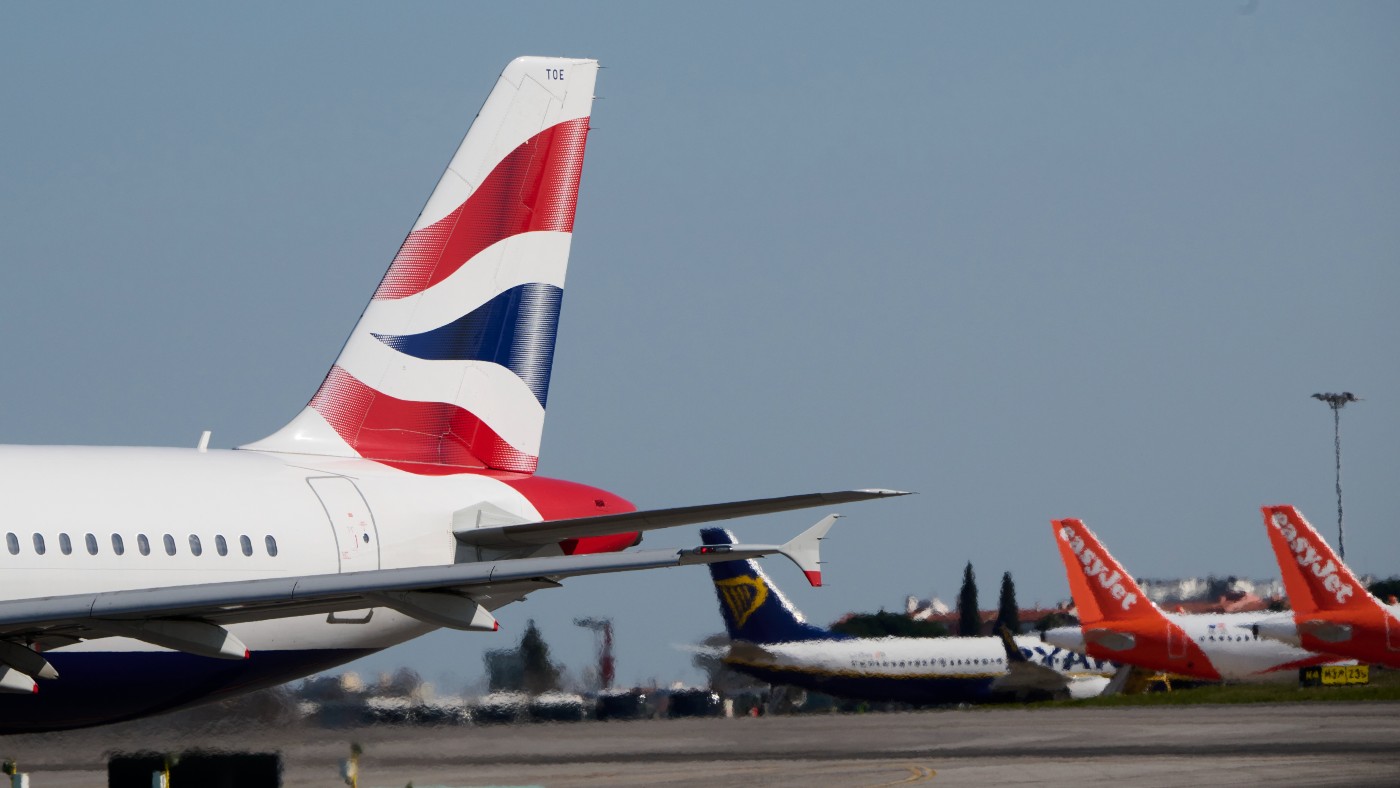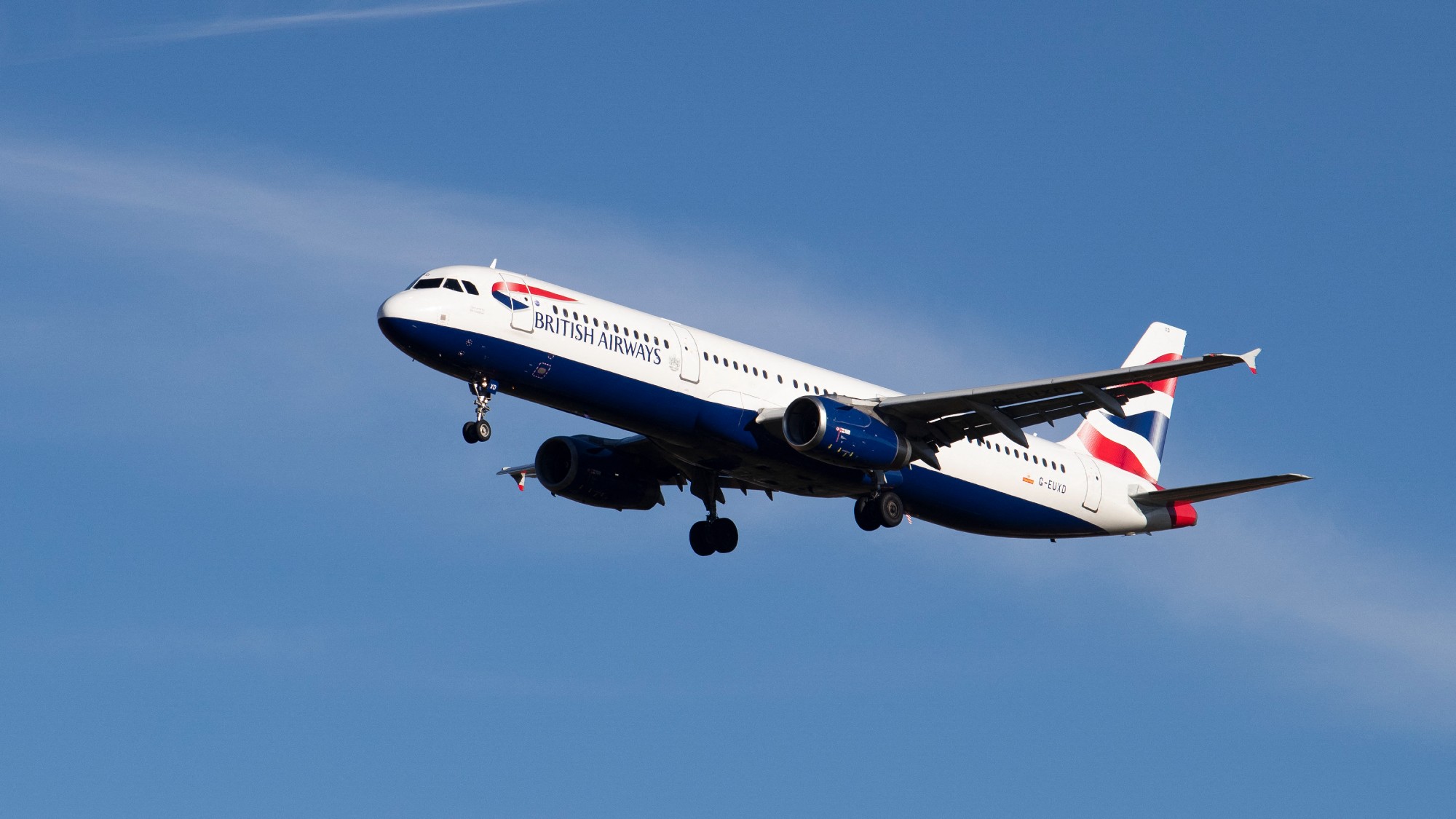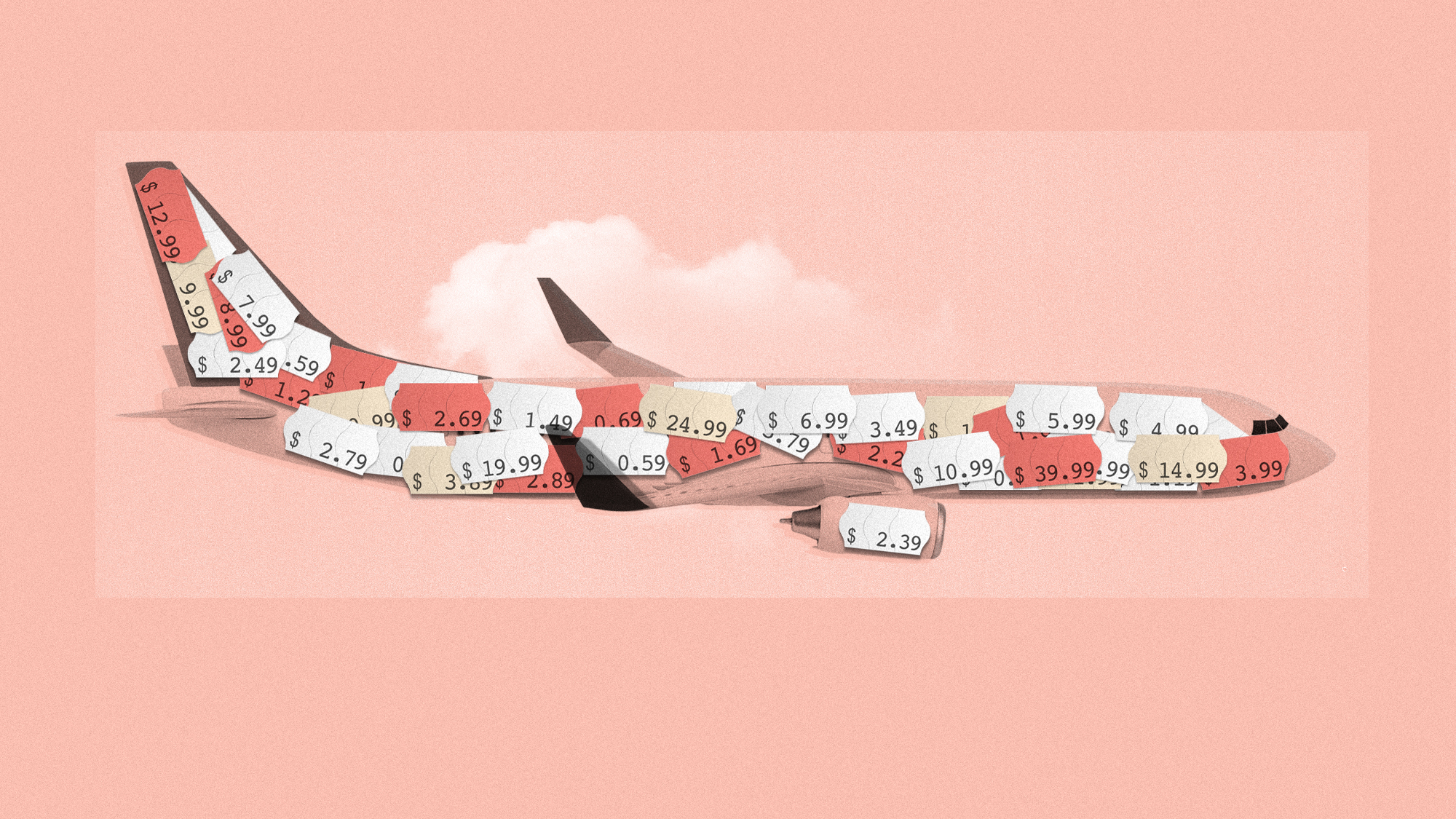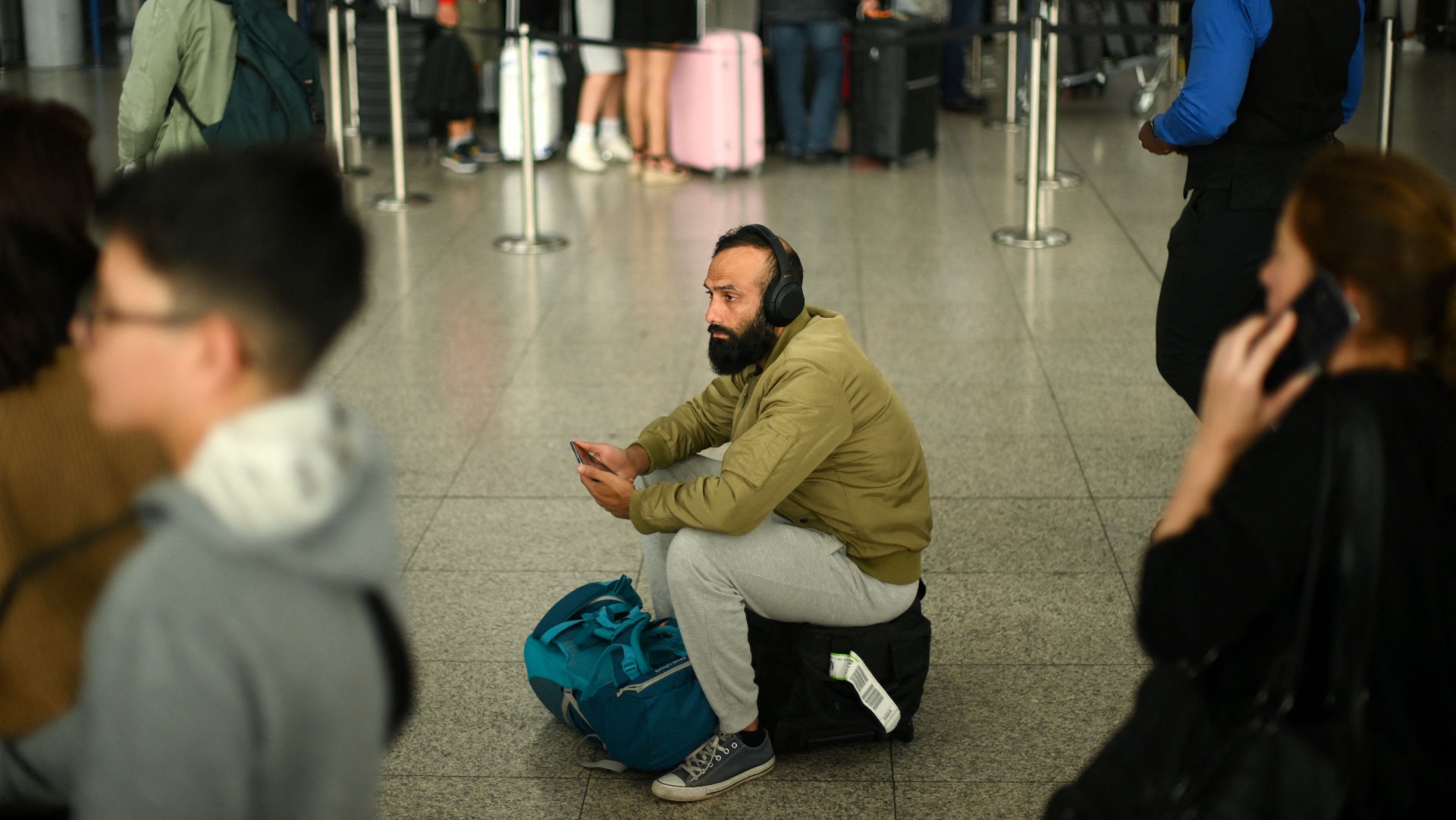Is British Airways in trouble?
Carrier has been forced to extend suspension of ticket sales for Heathrow flights

A free daily email with the biggest news stories of the day – and the best features from TheWeek.com
You are now subscribed
Your newsletter sign-up was successful
British Airways has suspended ticket sales for short-haul flights from Heathrow for a further week until 15 August as the carrier is hit by a “challenging” environment at the airport.
The announcement came shortly after BA said no more tickets would be sold for Heathrow departures before 8 August. The suspensions have been triggered by a cap on daily passenger numbers imposed by the UK’s biggest airport.
A maximum of 100,000 daily departed passengers will be permitted until 11 September – “4,000 fewer than previously scheduled”, said the BBC. And BA “could limit or suspend sales again while Heathrow’s cap is in place”.
The Week
Escape your echo chamber. Get the facts behind the news, plus analysis from multiple perspectives.

Sign up for The Week's Free Newsletters
From our morning news briefing to a weekly Good News Newsletter, get the best of The Week delivered directly to your inbox.
From our morning news briefing to a weekly Good News Newsletter, get the best of The Week delivered directly to your inbox.
What the papers said
The ticket sales suspension could allow rivals in the struggling aviation industry to steal a march on British Airways.
The flag carrier airline is limiting its share of the “lucrative last-minute flight market during peak season”, said The Guardian. That leaves other airlines such as easyJet in prime position “to pick up additional late bookings at high fares”, said The Independent.
But Alexander Paterson, an analyst at investment bank Peel Hunt, told The Telegraph that the financial hit to BA would be limited, because increased fares would “largely mitigate” the fall in capacity. He also noted that short-haul is the least profitable kind of flight.
BA’s parent company has been boosted by a financial bounce-back in the most recent quarter. In May, International Airlines Group (IAG) posted a first quarter loss of £624m (€731m). The “hefty” loss followed a “crushing €1bn coronavirus-led shortfall” for the same period last year, said London Evening Standard
A free daily email with the biggest news stories of the day – and the best features from TheWeek.com
But last week, IAG announced its first return to profit since the outbreak of the pandemic. Demand for European flights boosted the multinational’s “battered finances”, paving the way for a Q2 operating profit of €293m, “compared with an operating loss of €967m in the same period of 2021”, said Reuters.
The company is “returning to some form of normality following the most turbulent two years in the history of flying”, the news site added.
However, IAG has issued a warning about the state of the sector and the challenges now being faced as demand for flights soars.
“Our industry continues to face historic challenges due to the unprecedented scaling up in operations, especially in the UK where the operational challenges of Heathrow airport have been acute,” said CEO Luis Gallego.
What next?
Experts are predicting that BA’s halt on short-haul ticket sales for Heathrow may last for the rest of this summer.
“I’ve never seen anything like this before,” a “senior aviation source” told The Times. BA will have “hated having to do this at the peak of the summer season”, the insider said.
The airline has “ramped up its prices more than tenfold amid a scramble for tickets”, said the Daily Mail. According to the paper, a BA flight from Heathrow to Amsterdam on 27 August costs £511, up from £44 in June.
“There is a tradition of airlines inflating air fares to absurd levels in a bid to stop people booking,” Simon Calder, travel correspondent at The Independent, told the Mail.
“British Airways is certainly not in financial trouble,” he said. But the airline “cannot simply close flights to further sale without messing up the ability of travel agents to amend bookings”, so instead “prices flights at levels only the foolish or desperate would pay”.
BA has said that problems at Heathrow forced the airline to limit its capacity to 69.1% of pre-pandemic levels between April and June, and that this was expected to increase to about 75% between July and October.
And a leading expert said the effect of Heathrow’s restrictions will extend far beyond BA’s operating levels. Paul Charles, chief executive of travel consultancy PC Agency, told the Financial Times that the continuing restrictions threatened to undermine people’s belief “that flying is easy”.
“We are almost going back to the 1970s of higher seat prices, less availability and less flexibility to travel at short notice,” he said.
-
 Local elections 2026: where are they and who is expected to win?
Local elections 2026: where are they and who is expected to win?The Explainer Labour is braced for heavy losses and U-turn on postponing some council elections hasn’t helped the party’s prospects
-
 6 of the world’s most accessible destinations
6 of the world’s most accessible destinationsThe Week Recommends Experience all of Berlin, Singapore and Sydney
-
 How the FCC’s ‘equal time’ rule works
How the FCC’s ‘equal time’ rule worksIn the Spotlight The law is at the heart of the Colbert-CBS conflict
-
 The strangely resilient phenomenon of stowaways on planes
The strangely resilient phenomenon of stowaways on planesThe Explainer Lapses in security are still allowing passengers to board flights without tickets or passports
-
 Could smaller cars bring down vehicle prices?
Could smaller cars bring down vehicle prices?Today’s Big Question Trump seems to think so, but experts aren’t so sure
-
 Is Ye finally about to be canceled for good?
Is Ye finally about to be canceled for good?TODAY'S BIG QUESTION From doubling down on overt antisemitism and Nazi admiration to a series of alarming public appearances, the rap superstar and fashion mogul might have finally gone too far
-
 Eurovision 2024: how is politics playing out in Sweden?
Eurovision 2024: how is politics playing out in Sweden?Today's big question World's most popular song contest 'has always been politically charged' but 'this year perhaps more so than ever'
-
 Could Taylor Swift swing the election?
Could Taylor Swift swing the election?Today's Big Question The pop star has outsized influence — and that extends beyond the music industry
-
 Is it the beginning of the end for low-cost travel?
Is it the beginning of the end for low-cost travel?Today's Big Question How the potential death of Spirit Airlines could change America's travel landscape
-
 How will the writers' deal shape the future of Hollywood screenwriting?
How will the writers' deal shape the future of Hollywood screenwriting?Today's Big Question The post-strike entertainment industry could look very different for screenwriters
-
 Disruption to flights could last days after air-traffic control failure
Disruption to flights could last days after air-traffic control failureSpeed Read ‘Technical issue’ that grounded hundreds of planes to and from UK having knock-on effect on schedules